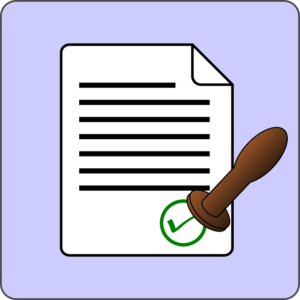“Plan sponsors can rely on participants to ‘self-certify’ they are qualified individuals who are eligible to take advantage of special rules for Coronavirus-related distributions (CRDs) and plan loans [1]. Can you explain what it means to self-certify? Is a plan sponsor required to obtain formal documentation?
ERISA consultants at the Retirement Learning Center (RLC) Resource Desk regularly receive calls from financial advisors on a broad array of technical topics related to IRAs, qualified retirement plans and other types of retirement savings and income plans, including nonqualified plans, stock options, and Social Security and Medicare. We bring Case of the Week to you to highlight the most relevant topics affecting your business. A recent call with a financial advisor from Massachusetts is representative of a common inquiry related to self-certification.
Highlights of the Discussion
The IRS explained what self certification for purposes of CRDs and plan loans means in IRS Notice 2020-50 [2], Section 2 E.
The administrator of an eligible retirement plan may rely on an individual’s certification that the individual satisfies the conditions to be a qualified individual in determining whether a distribution is a coronavirus-related distribution, unless the administrator has actual knowledge to the contrary.
The notice goes on to explain that having “actual knowledge to the contrary” does not mean the plan administrator must inquire whether an individual has satisfied the conditions to be a qualified individual, but need only possess information that is sufficiently accurate to judge the certification as truthful.
While the notice did not specify that the certification be “in writing,” retaining evidence of the certification is part of a good plan governance and administration process. To that end, the IRS included an example of an acceptable certification on pages 9 and 10 of Notice 2020-50 (reproduced below).
Name: _______________________ (and other identifying information requested by the employer for administrative purposes).
I certify that I meet at least one of the following conditions: (1) I was diagnosed with the virus SARS-CoV-2 or with coronavirus disease 2019 (referred to collectively as COVID-19) by a test approved by the Centers for Disease Control and Prevention (including a test authorized under the Federal Food, Drug, and Cosmetic Act); (2) my spouse or my dependent was diagnosed with COVID-19 by a test approved by the Centers for Disease Control and Prevention (including a test authorized under the Federal Food, Drug, and Cosmetic Act); or (3) I have experienced adverse financial consequences because: (i) I, my spouse, or a member of my household was quarantined, furloughed or laid off, or had work hours reduced due to COVID-19; (ii) I, my spouse, or a member of my household was unable to work due to lack of childcare due to COVID-19; (iii) a business owned or operated by me, my spouse, or a member of my household closed or reduced hours due to COVID-19; or (iv) I, my spouse, or a member of my household had a reduction in pay (or self-employment income) due to COVID-19 or had a job offer rescinded or start date for a job delayed due to COVID-19.
Signature: ______________________
The above certification, or one similar to it, can be used to authorize the
- Taking of a CRD;
- Recontribution (or rollover) of a CRD within three years to an eligible retirement plan; and
- Application of the special rules for coronavirus-related loans.
If a plan offers CRDs, accepts CRD rollovers and/or applies the special rules for coronavirus-related plan loans, the sponsor should check with its recordkeeping service providers to verify appropriate procedures related to the self-certification process are in place.
Conclusion
While not required to do so, qualified retirement plans can offer CRDs and implement special coronavirus-related loan rules [1]. Only qualified individuals may take advantage of these temporary rules if their work-place retirement plan offers them. To ease the determination as to whether a person is a qualified individual, plan sponsors can follow the self-certification guidance of IRS Notice 2020-50.
